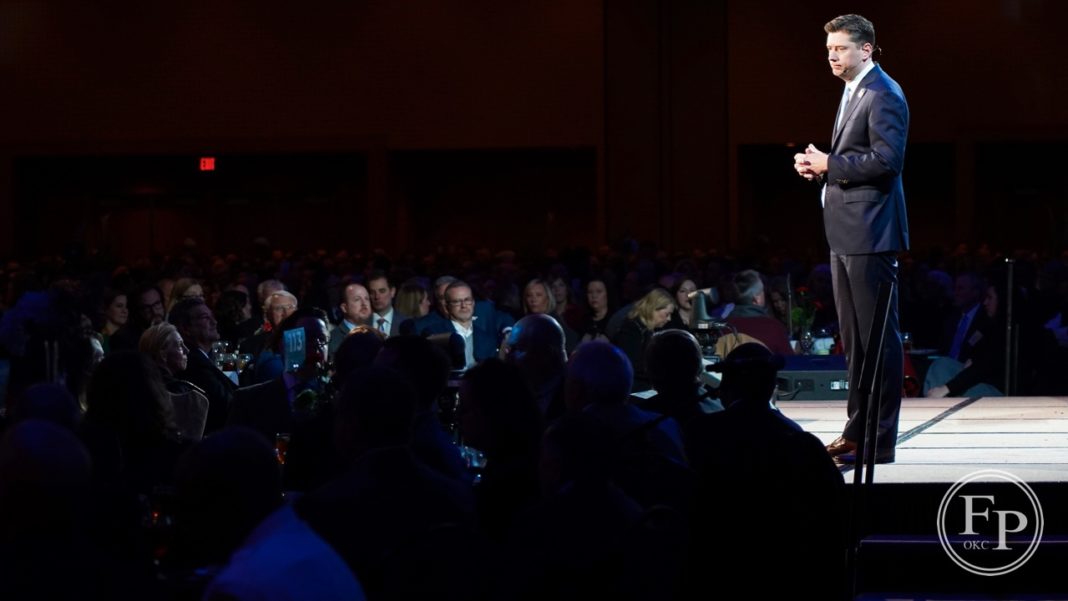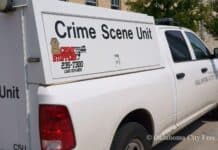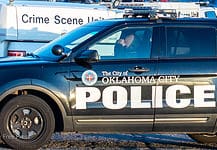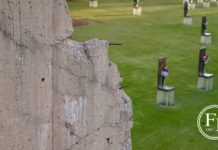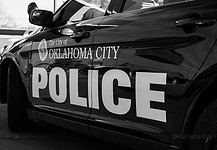Last Updated on April 19, 2020, 2:54 PM | Published: April 19, 2020
On the 25th anniversary of the 1995 bombing of the Alfred E. Murrah Federal building, the memorial service was a video product instead of a live event.
Every year since the bombing the live service with hundreds in attendance served as a remembrance of those 168 killed and hundreds more wounded in the horrific event on April 19, 1995 in Oklahoma City.
Instead, the Oklahoma City National Memorial Foundation sponsored a high-quality edited video remembrance that allowed different participants to come into the Oklahoma City National Memorial and Museum to record their segment without exposure to large groups at any one time.
“Evil acts”
Mayor David Holt’s segment was unique in that it directly confronted the ideology behind the bombing, something past mayors and governors have only hinted at in their public discourse.
“Evil acts like the one that occurred behind me depend on the triumph of dehumanization, the idea, first perpetuated through words, that you’re different than me. That your motivations are not pure. That you are my enemy, the enemy of my people, and that this struggle is so real that all tactics must be on the table,” Holt said.
And then Holt added to that thought a sharp criticism of some of the most hateful public discourse.
“To accept such dehumanization and to reject all the things that we share in common, the reality that we all love, we all have families, we’re all seeking virtually the same outcome, requires a remarkable amount of delusion.”
Holt even went as far as criticizing the current divisive political discourse not only in Oklahoma but at the national level.
“Right now, I hear such words coming out of the mouths of some of the most prominent people in our country, and I see them echoed in daily life by those who know better,” said Holt in the message.
But, he did not stop there.
“We must have better conversations, we must reject dehumanization, we must love one another,” said Holt.
The transcript of this segment provided by Holt is below. You may follow this link to the video of the entire remembrance.
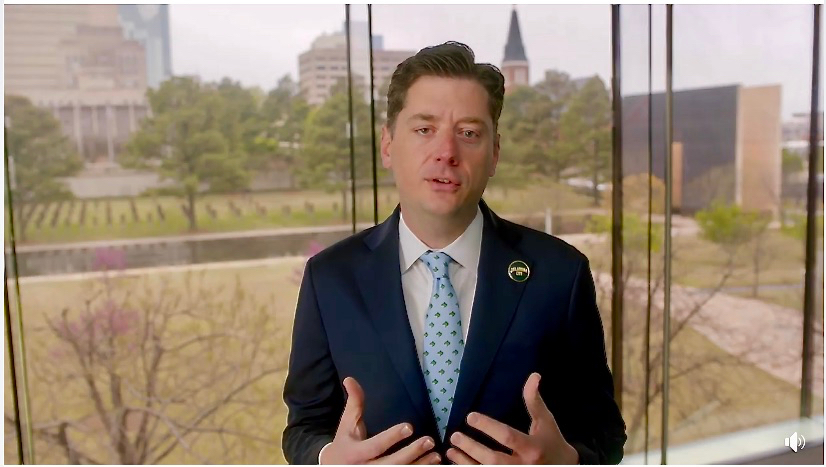
Transcript of Mayor David Holt’s segment of the Memorial video.
Good morning. This is not necessarily how we expected to come together today, but this remembrance is no less real and no less important. The anniversary we mark today and what April 19th, 1995 meant to our city and our nation transcends the challenges of April 19th, 2020. Nevertheless, the idea that sometimes certain events force change and reflection upon us is a phenomenon as timeless as the human experience.
In that sense, COVID-19, 9/11, the Bombing – these are all similar shared experiences along this journey we call life. In the wake of such events, what matters is that we take lessons from them and emerge wiser and more prepared to face similar challenges ahead.
As we have spent time these last few weeks considering what lessons we might learn from COVID-19, I have pondered what lessons we should take from April 19th. This seems more important than ever, as the commemoration of the 25th anniversary is a reminder that this shared experience, so important to our city’s identity, is transitioning from experience to history. As it does so, what can’t be lost are its lessons. In fact, those lessons are what is timeless. Those lessons make this sacred place relevant for decades to come. This is what it means to look back and to simultaneously think forward.
The Bombing was, ultimately, an act of extremist political violence made possible through dehumanization. The journey to such an act begins with thoughts; those thoughts become words. Like a virus, those words are heard by others and they pull out of the listener the thoughts and words that their better nature had previously rejected. Soon, one carrier becomes many and an ecosystem is created, where ideas once considered absurd are treated with credibility. Blowing up an office building full of civilians and children requires someone to walk down that dark path. It’s a path humanity has walked down too many times before. It is a path of dehumanization. And even though it ends with the most evil and horrific acts imaginable, that path is largely lined with the simplest gesture we have – words. And if you are not hearing those echoes again in our current political discourse, I ask you to listen harder.
Evil acts like the one that occurred behind me depend on the triumph of dehumanization, the idea, first perpetuated through words, that you’re different than me. That your motivations are not pure. That you are my enemy, the enemy of my people, and that this struggle is so real that all tactics must be on the table. To accept such dehumanization and to reject all the things that we share in common, the reality that we all love, we all have families, we’re all seeking virtually the same outcome, requires a remarkable amount of delusion. But we as humans have proven ourselves time and time again capable of such delusion. And we pay a terrible price, time and time again. I ask you to consider this morning that this sacred place is a sober reminder that humanity is in fact capable of such evil things, even here in the United States, even here in Oklahoma, and that we all have an obligation to speak up, and to reject words of dehumanization, words that divide us, words that cast others as our enemy. Right now, I hear such words coming out of the mouths of some of the most prominent people in our country, and I see them echoed in daily life by those who know better. We should know how this story ends, but let this place be a reminder. We must have better conversations, we must reject dehumanization, we must love one another.
Those are the lessons I hope we will continue to carry from this event, today and all the days that lie ahead. That is the Oklahoma Standard I believe in. The Standard that the people of Oklahoma showed in the hours that followed this evil act. We didn’t ask survivors what political party they were as we pulled them from the ruins. We didn’t ask the rescue workers how they voted in the last election before we served them lunch. We loved all, we accepted all. That’s who we are. That’s who we should always be. I’m proud of us for leading by example, and I think we always will.
To the people of Oklahoma City, I say, it is our unique obligation to carry these lessons forward. We did not choose this obligation, it was given to us, but we must carry the load so that our people will not have died in vain. We must speak with the authority of those who will always have a scar to which we can point, in the heart of our downtown. We know better than most Americans what happens when empathy, love and understanding are lost. We must be the first ones to always say, we’re all in this together. Let’s listen to each other and let’s find common ground.
Thank you for taking some time this morning to remember what happened here 25 years ago today, and to consider what it means to us now. If we carry the lessons of April 19th forward, this sacred place will be relevant 50 years hence, 100 years hence, and forever. May God bless the families of those who were lost, those who survived, those who came to our rescue, and to those changed forever. — End
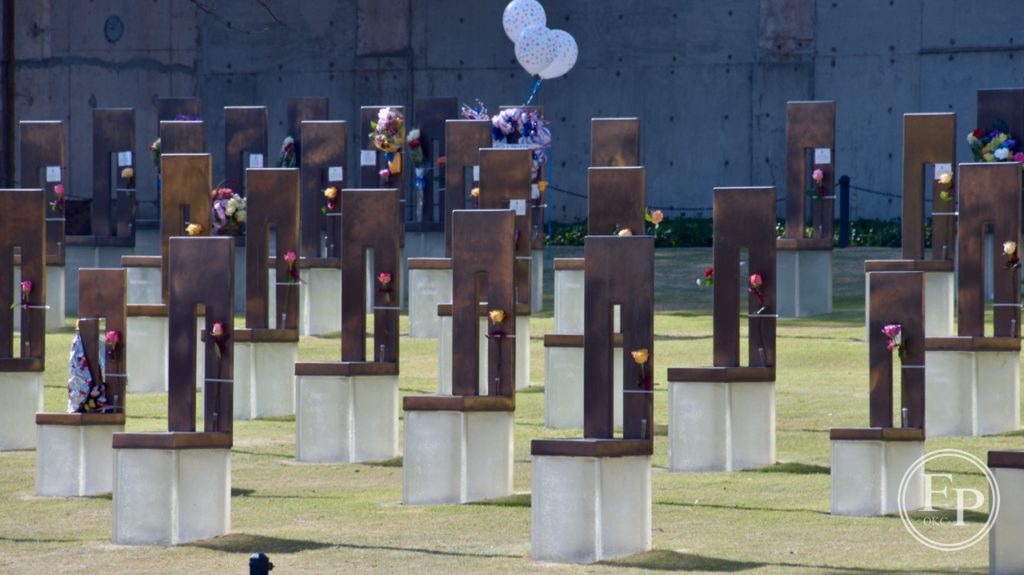
Founder, publisher, and editor of Oklahoma City Free Press. Brett continues to contribute reports and photography to this site as he runs the business.
